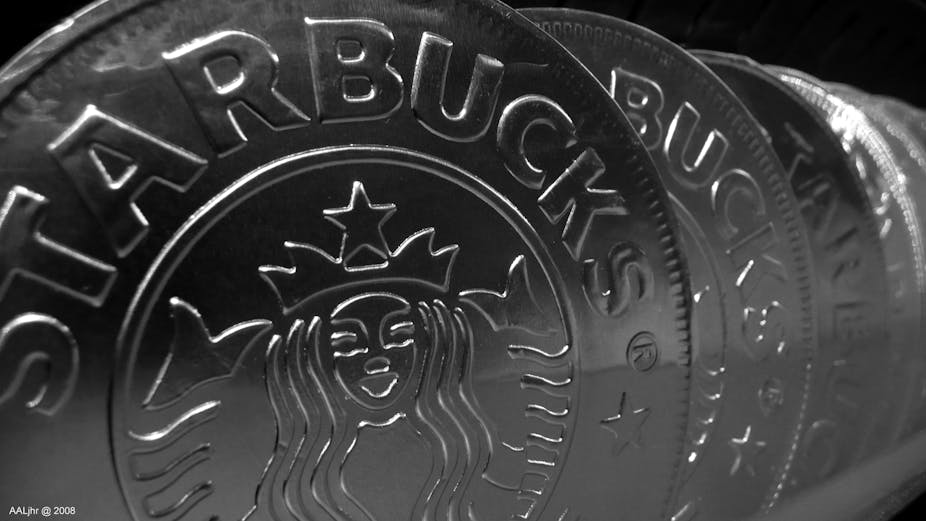Starbucks and Fiat must each pay up to €30m in tax repayments after the EU competition commissioner, Margarethe Vestager, ruled deals they made with the Netherlands and Luxembourg counted as unlawful state aid. It comes as a blow to multinationals looking to lower their tax bills and governments seeking competitive advantage through unfair tax practices. But more needs to be done to ensure companies pay sufficient taxes in the right jurisdictions.
There are numerous contradictions among countries that form regional trading blocs, such as the European Union. In pursuit of fair competition, the provision of state aid by member states is strictly controlled. At the same time, however, governments seek competitive advantage over one another and attract large corporations by offering them sweeteners, in the form of subsidies and tax deals.
Nation states are sovereign in matters of taxation, but this sovereignty facilitates disguised state aid. If a government hands over a large cheque to a corporation then that item becomes visible. It can be tracked by public watchdogs, such as the National Audit Office, to determine whether it generates the promised benefits. The subsidy, or state aid, needs to be reported to the EU and the issues can be raised in parliament too.
If governments offer a tax deal or go easy on tax avoidance schemes, corporate coffers still benefit. But these arrangements do not produce the same visibility and an easy audit trail for parliament or public watchdogs to pursue.
Consider the case of the UK. In the 2010-2015 parliament, the House of Common Public Accounts Committee published six reports on organised tax avoidance by large corporations. Starbucks, Amazon, Google, Shire Pharmaceuticals and others were the subject of their inquiries. But there has been no government-led inquiry of corporate tax avoidance.

Despite reducing the headline corporate tax rate to 20%, the UK government has designed complex schemes such as the Patent-Box which reduce corporate tax liabilities considerably below the headline rate. Nearly 30,000 cases of tax disputes are awaiting hearing in the UK, but public sector cuts mean the country does not have the administrative capacity to deal with them.
In this vacuum, so-called sweetheart deals are negotiated with corporations and only a fraction of claimed tax liabilities are collected. The deals relating to Goldman Sachs, Vodafone and other large companies have reduced corporate tax liabilities. The deals and the failure to challenge the schemes in court has helped to establish new precedents which facilitate more underhanded subsidies.
A kind of blow has now been struck by the European Commission’s ruling that Fiat in Luxembourg and Starbucks in the Netherlands received illegal state aid. In the absence of a common EU law on corporate taxation, the commission used corporate laws and treaties to challenge the subsidies provided through what it calls “artificial and complex methods” which “do not reflect economic reality”.
The essence of the tax strategies is that Fiat and Starbucks shifted profits to low-tax jurisdictions by applying complex transfer pricing rules to intra-group loans, royalty payments and other practices. The Luxembourg and Dutch tax authorities gave Fiat and Starbucks special tax concessions, not available to others, which reduced their liabilities by about €20m to 30m. These concessions, the EU has now ruled, artificially reduced corporate costs and gave Fiat and Starbucks unfair advantage over their competitors.
More to follow
The fallout from what became known as the Luxembourg Leaks, which show how thousands of companies negotiated special tax deals, is yet to be fully investigated.
Both Apple’s tax concessions in Ireland and Amazon’s in Luxembourg are also under investigation by the EU. The UK’s sweetheart deals of the type agreed with Goldman Sachs and Vodafone could also become the subject of scrutiny.
The EU ruling on Fiat and Starbucks is welcome but more effective tools are needed. Large companies should be required to publish their tax returns and all related tax correspondence. A country-by-country report is a vital tool for transparency. Under this, large companies would be required to publish information showing their sales, profits, assets, taxes and employees in each country of their operations. Such a report would highlight discrepancies between economic activity and the incidence of taxation. It would alert citizens and tax authorities to profit shifting and tax avoidance strategies.
In July 2015, the European Parliament voted by 550 to 57 to make country-by-country reporting mandatory and publicly available, but the Organisation for Economic Co-operation and Development (OECD) recommended that this information should only be released to selected tax authorities.
The EU, meanwhile, is supporting calls for a redesign of the corporate tax system in the shape of unitary taxation so that all intra-group profit-shifting strategies can be negated. So far the OECD has opposed such a move. Clearly, there will be interesting skirmishes ahead.

